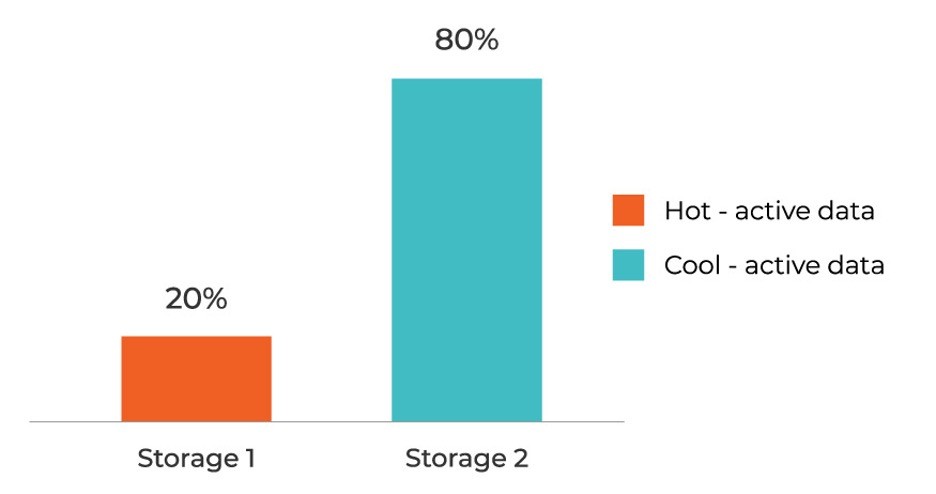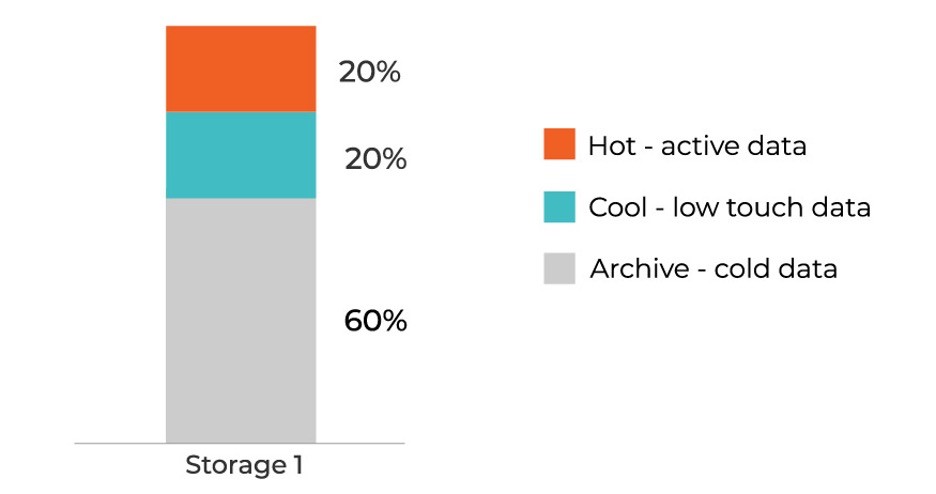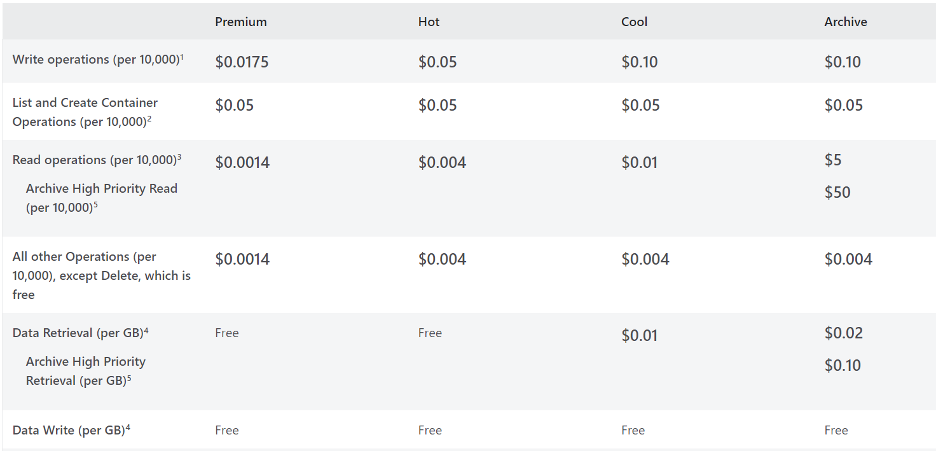What is Microsoft Azure Archive Blob Storage?

Archive Blob Storage is a tier in Azure storage that helps make the Azure cloud platform an ideal place to archive data. If you need to keep data for long periods of time but will rarely (or never) access it, then you need to know about the Archive tier.
As the name implies, Blob-level tiering enables us to define the storage tier at the individual object level.
When Microsoft introduced this tier back in 2017, but it hasn’t been front-of-mind for many.
Table of Contents:
- What the Archive tier means for Blob Storage Accounts
- How Azure Archive Storage Pricing Works
- Comparison to Amazon AWS Glacier
- Use Cases for Azure Cloud Archiving
What the Archive tier Means for Blob Storage Accounts
Before the Archive tier was available for blob storage in Azure, there were two storage tiers: Hot and Cool.
The Hot and Cool tiers were initially a setting at the storage account level in Azure which meant that all blobs inside an account would have the same tier. Indeed, you could change an account from Hot to Cool, or vice versa, but the tier applied to all blobs in the account.
As an example, if you had 100 TB with 80% low-touch data, then you would likely need to have two blob storage accounts, as follows:

With blob-level tiering control, Azure Blob storage accounts support a mix of tiers wherein individual items will be either Hot, Cool, or Archive. Furthermore, you can change the tier on one or multiple objects at any time. It’s obvious to see how powerful this tiering model is.
Let’s apply our 100 TB storage example to this new concept. Instead of multiple storage accounts for the different levels, we simply have one storage account which may have content distributed across the storage tiers, as follows:

How Azure Archive Storage Pricing Works
Data that has not been accessed in over a year is unlikely to be retrieved anytime soon.
In the archiving business, we see that it is common for 70% of an organization’s unstructured data to be suitable for deep archive cold storage.
The Archive tier pricing is ideal when you know the following to be true:
- The content has a long or indefinite retention period, and
- Access activity is rare.
You want to be sure about these things before using Archive storage in Azure because of how the pricing is structured. Indeed, storage cost per month on the Archive tier is incredibly small. However, the activity costs are significantly higher than what you will find with the Hot or Cool tiers. The key to containing cloud storage costs is to place the appropriate workload on the optimal tier at the right time.
The following examples use the East US 2 Azure region’s prices for LRS blob storage in USD. In them, we can see significant storage cost savings with Archive versus Cool and Hot, as follows:

What is easy to overlook initially is that there are storage activity costs associated with writing and reading objects into public cloud storage. Keep in mind that the pricing available for AABS today is subject to change in GA. Here is what we have for storage activity prices across the three tiers:

At first glance, these are all small numbers, but in large-scale scenarios they add up quickly. Storage activity costs become more noticeable when you are talking about any workloads that involve large numbers of small files. Email is a perfect example of this. Machine-generated data is another.
Comparison to Amazon AWS Glacier
Before Azure had the Archive tier, Amazon AWS Glacier had been the cold storage cloud destination of choice.
We believe Azure Archive Blob Storage is the better enterprise solution for archiving because of its flexibility and convenience. Granular object-level controlling of tiers enables applications to provide a better user experience with more sophisticated data management controls. Unlike Glacier, Azure Archive Blob Storage does not force you to manage your data in sets, and the retrieval experience is cleaner as a result.
Use Cases for Azure Cloud Archiving
Veritas Alta™ SaaS Protection has tight integration with the Azure Blob Storage Archive tier that has been proven in multiple real-world scenarios. Alta SaaS Protection’s use of the Archive tier has proven to be very cost-effective for long-term data retention and has been shown to be capable of dramatically reducing customers’ cloud storage costs.
If you’d like to learn more about how Alta SaaS Protection can help your organization cut costs, contact us today for a discussion or to schedule a demo!
